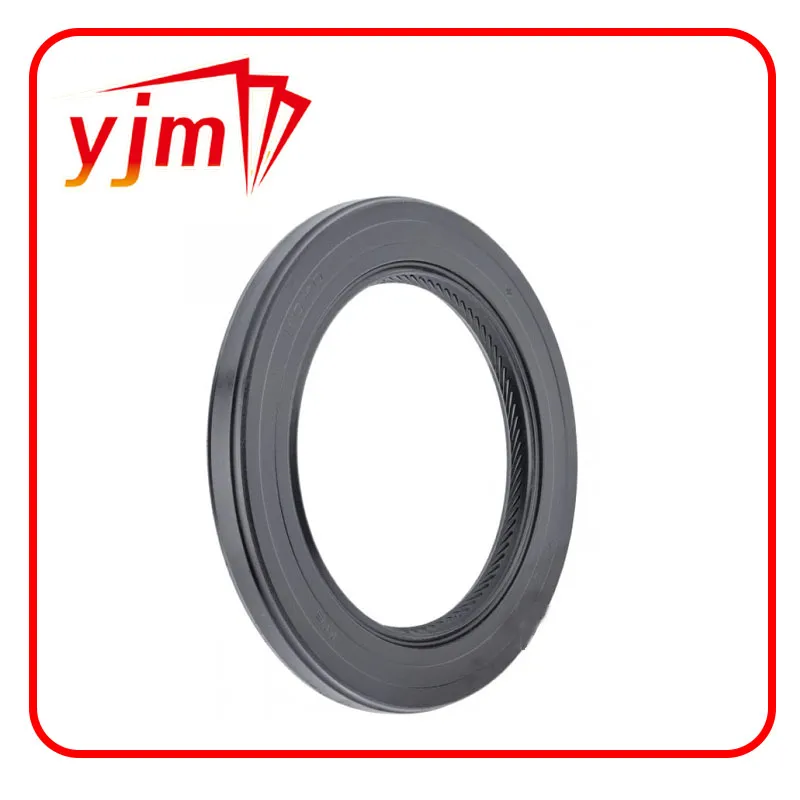Understanding the Importance of Semi Truck Hub Seals for Optimal Performance
Understanding Semi Truck Hub Seals Importance, Types, and Maintenance
Semi trucks, being the backbone of the freight transportation industry, face numerous challenges on the road. One crucial component that ensures their efficiency and safety is the hub seal. This unassuming yet vital part plays a significant role in maintaining the performance of the vehicle's wheel hub assembly. In this article, we will delve into the importance of semi truck hub seals, the different types available, and some maintenance tips to prolong their lifespan.
The Importance of Hub Seals
Hub seals are essential for preventing the ingress of contaminants such as dirt, dust, and water into the wheel hub assembly. They also help retain the lubricant within the bearings, which is crucial for reducing friction and wear. A well-functioning hub seal ensures that the wheel hub operates smoothly, enhancing the overall performance of the truck.
Without a functioning hub seal, a semi truck can experience a range of issues. Contaminants can lead to premature bearing failure, which may result in costly repairs and prolonged downtime. Additionally, loss of lubricant can lead to overheating and further damage to the wheel hub, jeopardizing the vehicle's safety on the road.
Types of Semi Truck Hub Seals
There are several types of hub seals, each designed to cater to various applications and conditions. The most common types include
1. Lip Seals These seals feature a flexible lip that conforms to the shaft's diameter. Lip seals are widely used due to their reliability and effectiveness in keeping contaminants out while retaining lubricant. They are often made from materials such as rubber or polyurethane.
2. Full Contact Seals These seals offer a higher degree of sealing capability, making them suitable for harsh environments. Full contact seals create a tight bond with the shaft surface, providing optimal protection against dirt and moisture, thus extending the lifespan of the wheel hub assembly.
3. Bearing Seals These are specifically designed to protect the bearings within the hub. They feature tighter tolerance specifications to ensure that no foreign particles can penetrate, thereby preserving the integrity of the bearings and reducing maintenance needs.
semi truck hub seal

4. Magnetic Seals Utilizing a magnetic attraction, these seals help keep contaminants at bay. They provide an additional layer of protection by ensuring that any metallic debris does not enter the hub area.
Maintenance Tips for Hub Seals
Proper maintenance of hub seals is essential for maximizing their effectiveness and longevity. Here are some tips to ensure your semi truck’s hub seals remain in optimal condition
1. Regular Inspections Conduct routine visual checks of the hub seals for any signs of damage, wear, or leaks. Look for cracks, deformations, or any signs of lubricant seeping out, which could indicate a compromised seal.
2. Lubrication Checks Regularly monitor the lubrication levels within the wheel hubs. Ensure that the lubricant is clean and free from contaminants. If the lubricant appears dirty or has a burnt odor, it may be time for a change.
3. Proper Installation Ensure that hub seals are installed correctly during servicing. Misalignment can lead to premature seal failure. Adhering to the manufacturer's guidelines during installation is crucial for optimal performance.
4. Driving Habits Encourage safe driving practices. Sudden stops, excessive cornering, and heavy loads can put additional stress on the wheel hubs and seals. Gentle driving can help extend the life of hub seals.
5. Environmental Considerations Depending on the operating environment of the semi truck, which may include exposure to extreme temperatures or excessive road grime, the choice of hub seal material may need to be reconsidered. Choose seals designed for specific environmental conditions to ensure durability.
Conclusion
In conclusion, semi truck hub seals are integral to the overall functioning and safety of heavy-duty vehicles. Understanding their importance and the various types available ensures that truck owners can make informed decisions when it comes to their maintenance and replacement. By adopting a proactive maintenance routine, trucking companies can avoid costly breakdowns and keep their fleets operating efficiently, ultimately leading to enhanced safety on the roads.
-
Simplifying Oil Changes: A Comprehensive Guide to Oil Drain Plugs and Their Variants
News Aug.04,2025
-
Mastering Oil Drain Maintenance: Solutions for Stripped, Worn, and Upgraded Oil Plugs
News Aug.04,2025
-
Fixing Oil Pan Plug Issues: Leaks, Stripped Nuts, and the Right Replacement Solutions
News Aug.04,2025
-
Everything You Need to Know About Oil Drain Plugs: Sizes, Fixes, and Upgrades
News Aug.04,2025
-
Choosing the Right Oil Drain Plug: A Guide to Sizes, Materials, and Drain Innovations
News Aug.04,2025
-
A Complete Guide to Automotive Drain Plugs: Types, Problems, and Innovative Solutions
News Aug.04,2025
-
The Ultimate Guide to Car Repair Kits: Tools and Essentials Every Driver Should Own
News Aug.01,2025
Products categories















